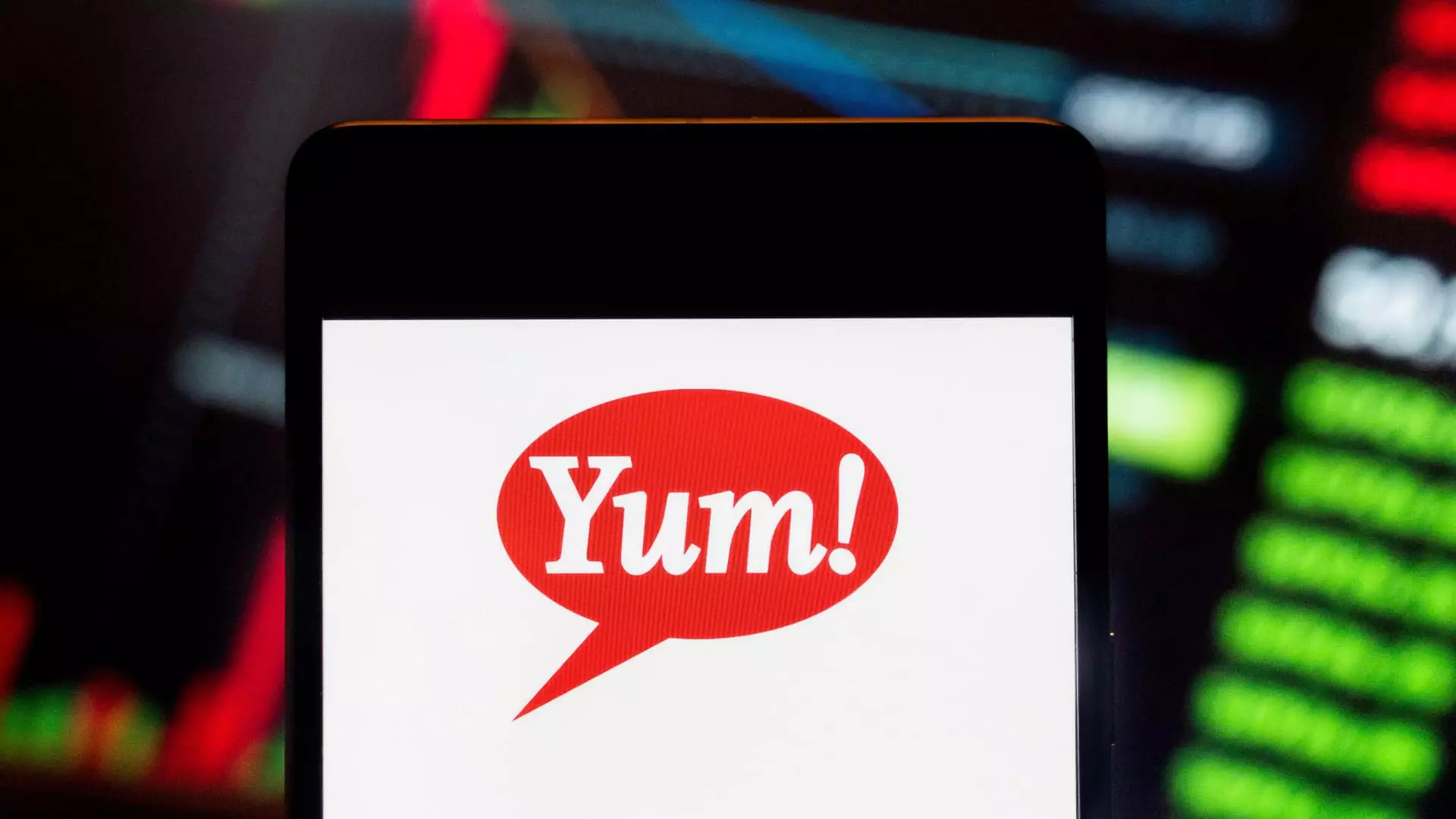Yum Brands, the parent company of popular fast-food chains such as KFC, Pizza Hut, and Taco Bell, recently released its quarterly earnings, revealing a disturbing trend that has left analysts and stakeholders questioning the company’s resilience in a turbulent economic climate. The latest figures fell short of Wall Street’s optimistic projections, indicating a worrying deviation from the previously established growth trajectory.
In a challenging economic landscape marked by varying consumer behaviors across global markets, Yum Brands reported earnings per share (EPS) of $1.37, narrowly missing the expected $1.41. Revenue for the quarter clocked in at $1.83 billion, falling short of the analysts’ forecast of $1.90 billion. The company’s net income was recorded at $382 million, or $1.35 per share, illustrating a decline from $416 million a year prior. This decline is particularly concerning, as it reflects an ongoing struggle amidst rising competition and shifting consumer preferences.
Yum’s CEO, David Gibbs, addressed the complexities arising from a mixed consumer environment during the earnings conference call, attributing the notable performance gaps to regional sales discrepancies that have hindered overall growth. This sentiment resonates strongly in light of heightened political tensions in various markets, notably in the Middle East, which have substantially impacted KFC’s sales. The fast-food giant is grappling with stagnant growth, especially in its second-largest market, the U.S., where KFC has recently lost ground to rising competitors like Popeyes.
Declining same-store sales figures act as a major red flag, with KFC and Pizza Hut both suffering declines of 4% during the quarter, contributing to Yum’s global same-store sales decline of 2%. Such statistics indicate that despite Yum’s ambitions to achieve 5% unit growth and 7% system sales growth, this quarter’s dismal performance places those goals under significant scrutiny.
KFC, a cornerstone of Yum’s portfolio, saw dramatic sales dips, particularly in its international markets, where some locations experienced a staggering 45% decline in same-store sales due to external pressures. In the U.S., KFC’s same-store sales fell 5%, underscoring the brand’s vulnerability against aggressive competition and shifting consumer loyalties. Executives have acknowledged the necessity for KFC to emphasize value offerings moving forward, highlighting a strategic pivot that is likely to be critical in retaining market share.
Conversely, Pizza Hut faced a pronounced drop in international same-store sales, decreasing by 6%, while its U.S. sales experienced a more modest contraction of 1%. The company is responding by actively deploying discounted promotions across key international markets, including China and India, aiming to regain customer interest amidst the current downturn. The effectiveness of these strategies remains to be seen, as Pizza Hut seeks to recover from this quarter’s setbacks.
Amidst the concerning performance from KFC and Pizza Hut, Taco Bell has managed to carve out a different narrative. The chain reported a commendable 4% increase in same-store sales, driven by strategic menu innovations such as the Cheesy Street Chalupas and the reintroduction of the Big Cheez-It. Furthermore, Taco Bell’s strong value positioning allowed it to capture consumer interest even as the fast-food sector faces a broader industry-wide decline.
“Our ongoing commitment to value perception is establishing Taco Bell as a leader in the fast-food marketplace,” Gibbs noted, reflecting the brand’s unique ability to connect with its customer base during turbulent times. This resilience underscores Taco Bell’s potential as a key driver of Yum Brands’ recovery efforts in the coming quarters.
As Yum Brands navigates these turbulent waters, critical strategic adjustments are paramount for its future success. Focused overhauls at KFC and Pizza Hut—emphasizing value and innovative discount strategies—could be crucial in rejuvenating interest and fostering growth. Moreover, learning from Taco Bell’s recent successes might offer valuable insights into fostering customer loyalty and resurgence in sales.
While Yum Brands faces significant challenges reflected in its recent earnings report, the company’s proactive adjustments and keen focus on value may determine whether it can turn the tide in subsequent quarters. Ongoing consumer sentiment evaluation alongside market responsiveness will be essential in redefining the brand’s path to growth.

